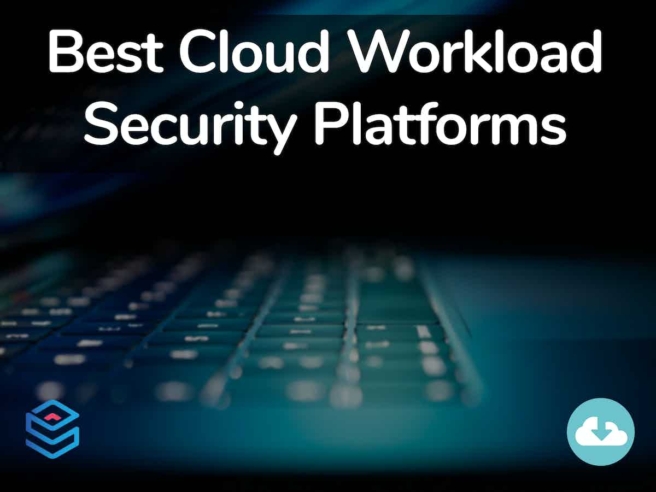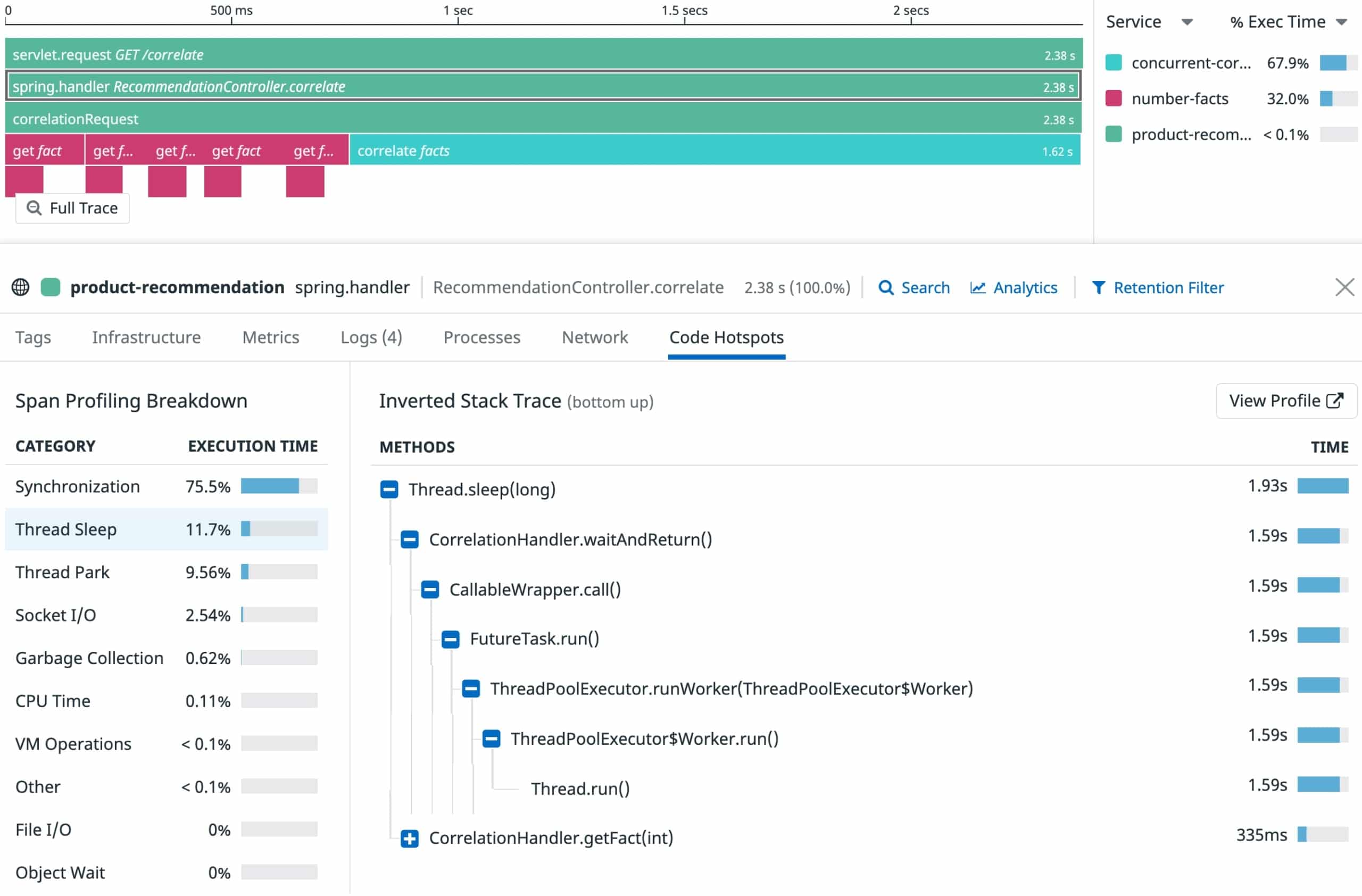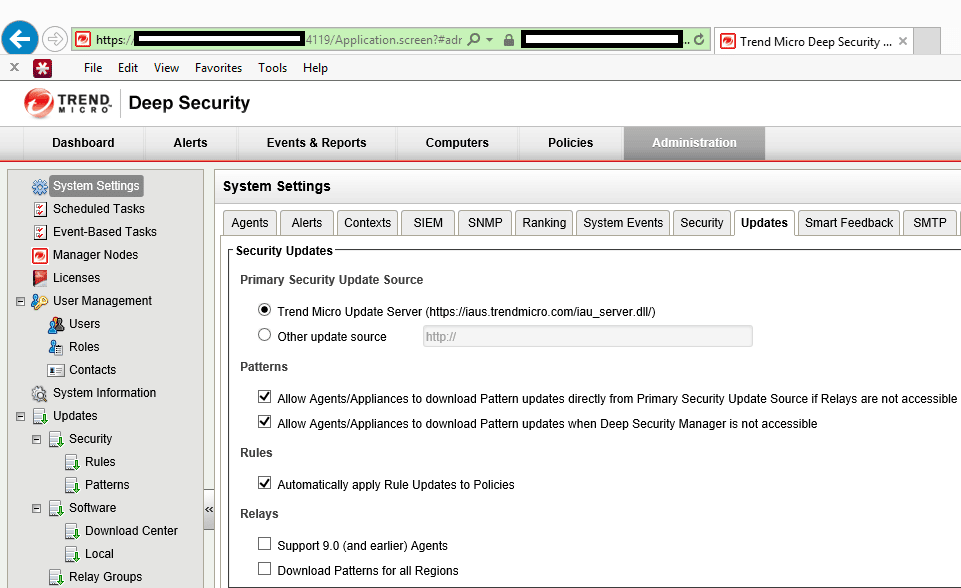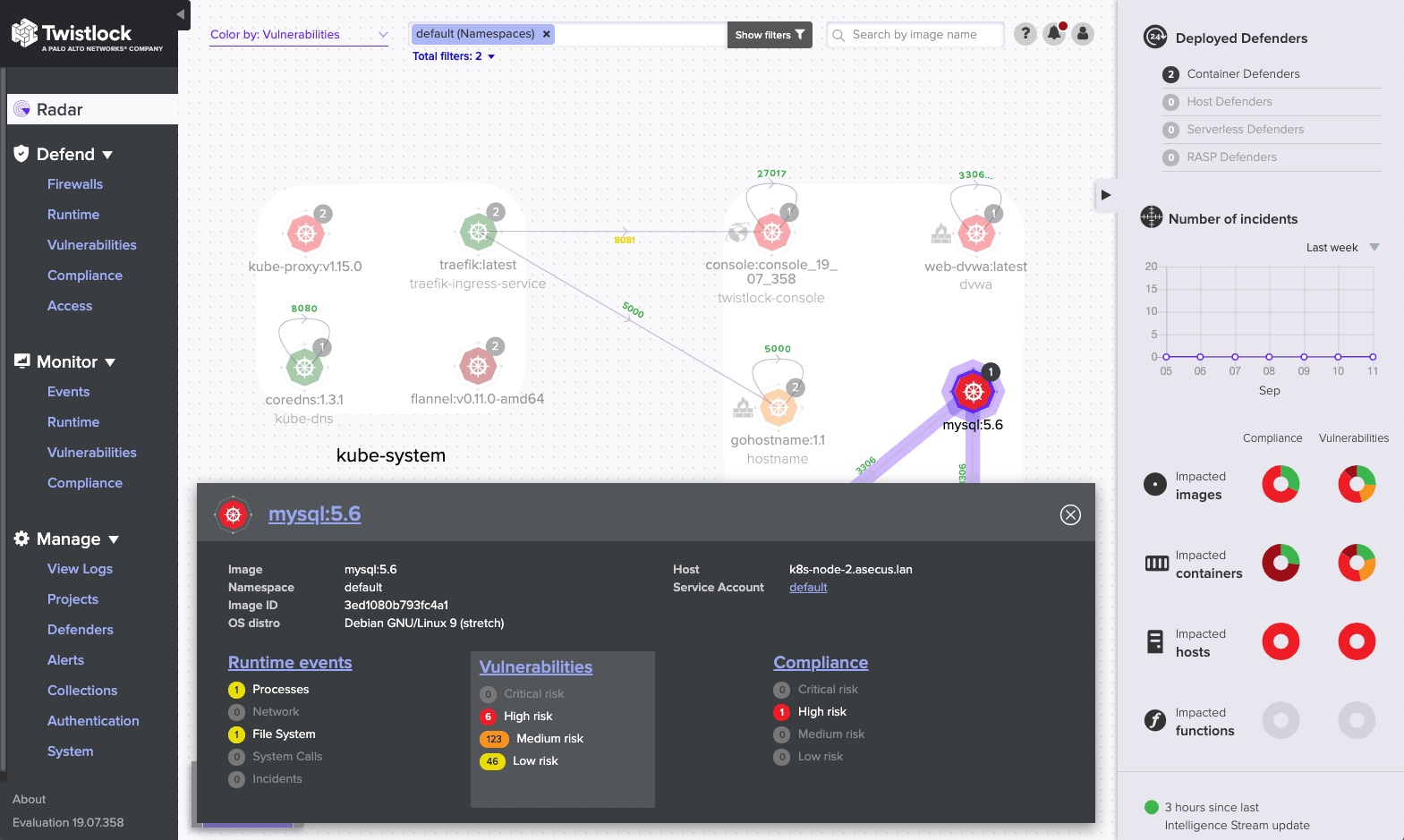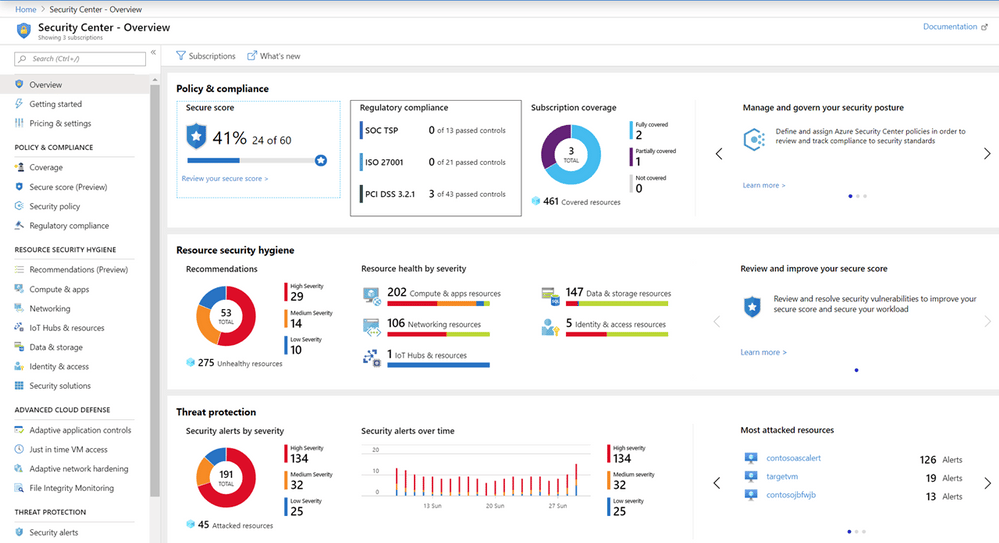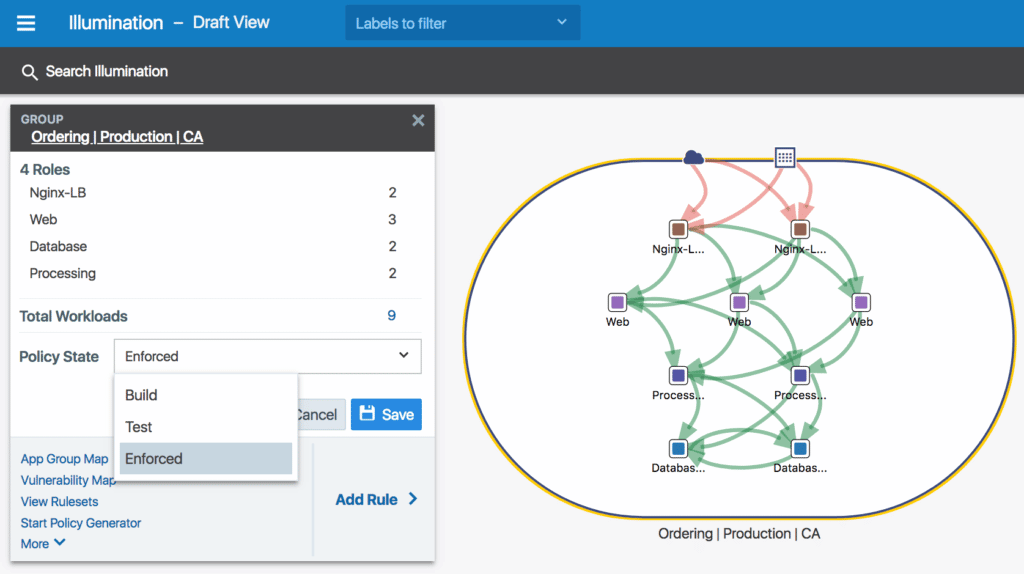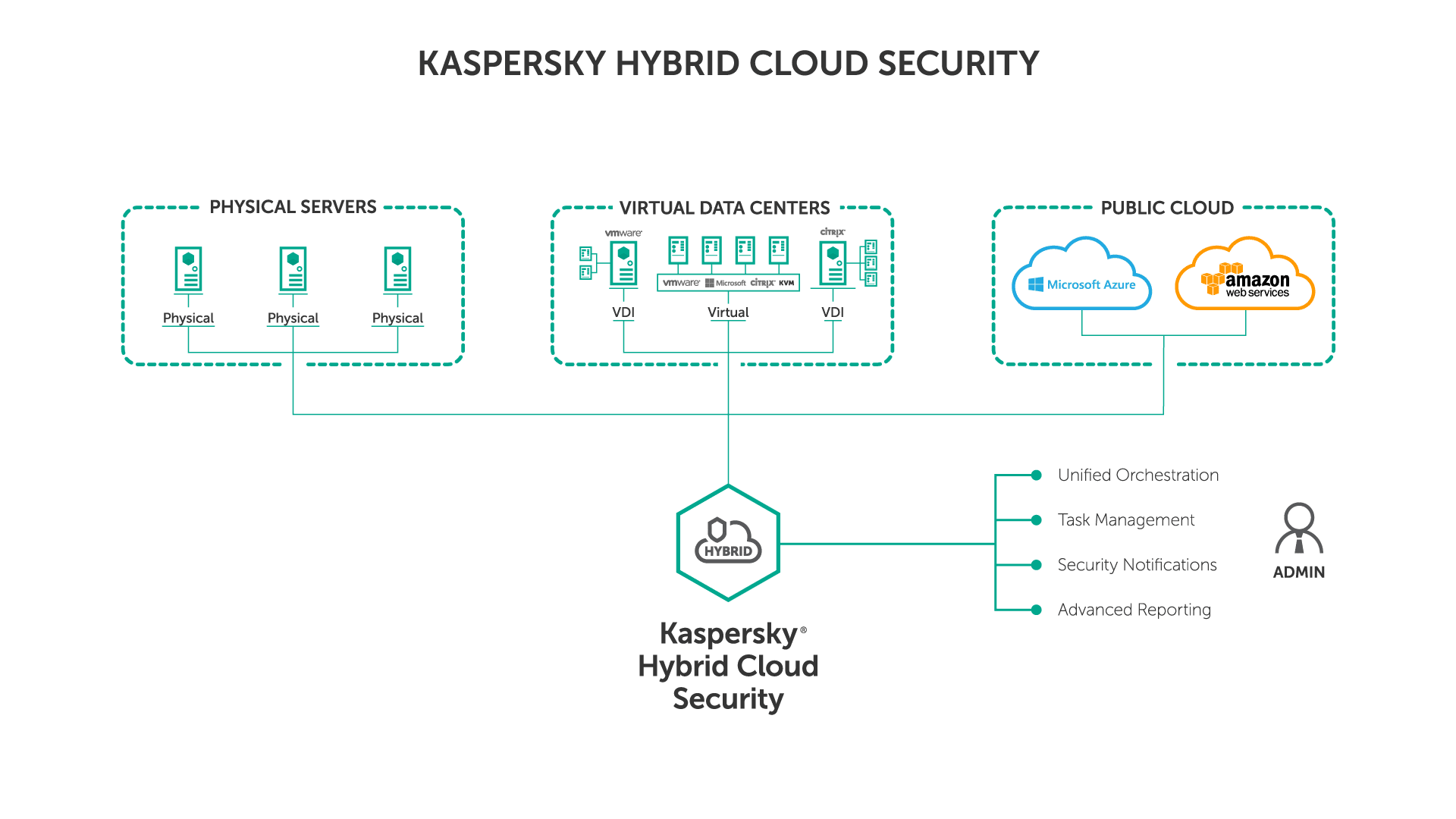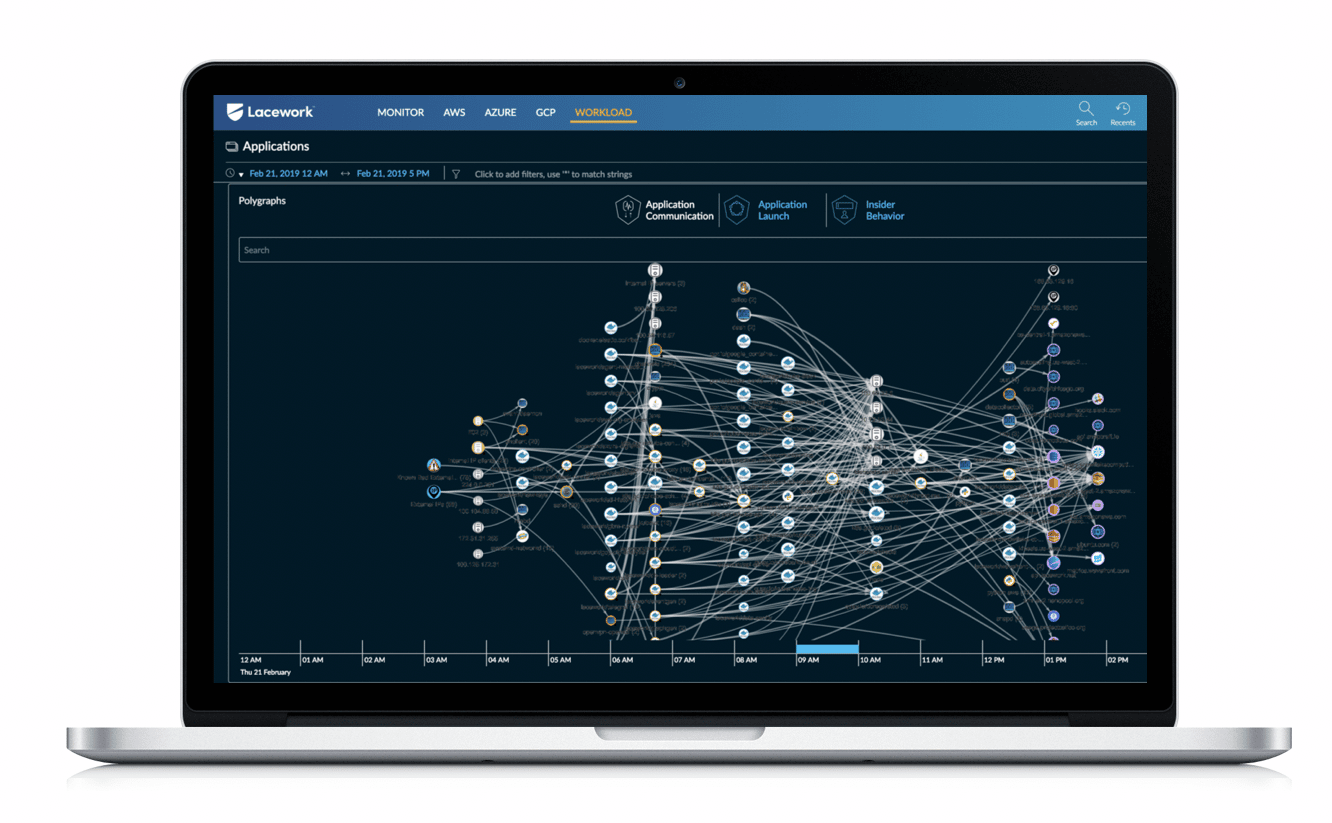Cloud technologies are dominating every part of the modern business environment. Most business models will have at least some use of cloud services. As businesses turn more and more towards digital platforms, their operations become more efficient, however, the demand for online workloads grows in tow.
In a cloud environment, a workload is anything that runs on a cloud server and is tasked with delivering certain information to the user. This encompasses databases, VMs, as well as physical servers consuming cloud-based resources.
While utilizing cloud resources can be a big improvement for your business, it comes with its own set of challenges you need to keep in mind. Without a workload protection tool, your information will be vulnerable to a variety of workload security threats ranging from simple misconfigurations to malware and credential theft.
Today, we’ll be going over the best cloud workload security platforms out there.
Here is our list of the top cloud workload security platforms:
- Datadog Datadog’s Cloud Security Platform is the most customizable tool on this list. It provides extremely in-depth monitoring and visibility for all of your cloud deployments, supporting multi-cloud and hybrid deployments as well. It also integrates seamlessly with the rest of the Datadog suite, and sports over 500 different third-party integrations to provide the ultimate experience.
- Trend Micro Deep Security An in-depth, enterprise-focused tool with sandbox analysis and Behavioral analysis capabilities.
- Prisma Cloud A holistic cloud workload security platform that integrates well with Continuous integration/continuous delivery workflows
- Microsoft Azure Security Center A cloud workload security platform designed primarily for Microsoft and Azure environments that still does a good job outside of them.
- Illumio Core An easy-to-use micro-segmentation cloud workload security platform with vulnerability map generation capabilities.
- Kaspersky Hybrid Cloud Security An extremely versatile tool with Next-Gen threat protection and analysis.
- Lacework An extremely innovative tool with a variety of ML-based approaches to security and an intuitive interface.
What is a Cloud Workload Security Platform?
Cloud Workload Security Platforms are tools tasked with protecting cloud workloads from a wide berth of cybersecurity challenges. These solutions guarantee the complete protection of your VMs, containers, physical servers, and other pieces of your cloud infrastructure when moving their data from one environment to another.
Since cloud computing has grown so much in the last few years, cybercriminals are also looking for ways to attack them. Because of this, it’s crucial to implement proper cybersecurity measures and minimize your attack surface.
By using cloud workload security platforms, all of the data coming into your applications, as well as the data going out of them will remain secure. Furthermore, these tools allow your administrators to monitor the performance of your workloads.
It’s important to keep in mind that workloads or any other part breaking can lead to the application ceasing function completely. Because of this, if you want the full functionality of cloud services, having security software can help you ensure that your apps always stay running.
The Best Cloud Workload Security Platforms
1. Datadog
Datadog is one of the largest companies in the cybersecurity world as a whole. It provides a wide variety of monitoring, security, troubleshooting, and backup software. Datadog’s Cloud Security Platform is one of the best security platforms used in cloud apps across the world.
Key Features:
- Quality data aggregation features.
- Extremely scalable.
- Real-time monitoring features.
- Over 500 different integrations.
- FIM(File Integrity Monitoring) capabilities.
- Quick setup and real-time threat detection.
- Offers a variety of customization and alerting options.
The tool will help you quickly detect, monitor, and react to any potential threats much more quickly than most other tools would let you. Datadog also supports a variety of community-made add-ons and over 500 different 3rd party integrations. The tool also allows developers to analyze all of their security and operational logs.
The Datadog Cloud Security Platform easily integrates with the rest of the Datadog suite, so if you’re already using Datadog’s tools for some parts of your infrastructure, this tool will fit snugly into your environment.
One of the biggest benefits of Datadog is its customizability. You can customize the dashboard which allows you to monitor the end-to-end user experience as you see fit. Furthermore, the alerts system is robust and easily customizable through custom thresholds.
In terms of threat detection, Datadog Cloud Security Platform can detect security threats in real-time, in addition to constantly monitoring network performance. It will also help you react to threats once they’ve been detected. The tool easily allows you to manage workloads, and kernel activities, track threats, gain visibility into your infrastructure, as well as generate high-quality reports for inter-team communication.
Since the tool uses universal Datadog Agents, if you’re already using an agent-based Datadog tool, it won’t use any additional resources to set up agents.
The Datadog Cloud Security Platform can be a bit difficult to get to grips with for newer users. The tool offers a 14-day free trial as well as a demo.
2. Trend Micro Deep Security
Trend Micro Deep Security is an in-depth, enterprise-focused cloud workload security platform. It focuses on providing powerful, high-quality solutions to your issues while not impeding performance. The tool will easily navigate your network as well as identify and protect critical data from malicious actors.
Key Features:
- Sandbox analysis and Behavioral analysis capabilities.
- Machine-learning based features.
- Routine health checks and integrity monitoring capabilities.
- Centralized, web-based management window.
- Easy-to-use auto-scaling features.
- Extremely quick detection and protection of vulnerabilities.
The tool provides you with integrity monitoring, a firewall service, AI-based behavioral analysis, sandbox analysis, and web reputation service. All of these features are put together to make this an excellent tool that quickly integrates with DevOps processes. Trend Micro Deep Security provides an instance-based way to protect your cloud workloads by taking advantage of ML(machine learning) and Virtual Patching.
For such an in-depth tool, Deep Security provides an intuitive dashboard that lets you accelerate incident responses and helps you react to problems quickly and efficiently. The tool also provides consistent security across a variety of cloud environments.
The tool gives you access to a variety of automated and AI-based features. The tool will also inspect and protect all of your logs, and routinely perform health checks to ensure that your infrastructure is running smoothly.
It will also help you meet regulatory compliances and provide context-based proactive protection, deeply rooted in its ML-based analysis of your infrastructure. The tool also integrates seamlessly with most DevOps processes, in addition to auto-scaling features that make scaling the software up or down a breeze.
Outside of an enterprise setting, the Trend Micro Deep Security’s breadth of features can be difficult to get the most out of. The tool offers a 30-day free trial with all of its features unlocked.
3. Prisma Cloud
Prisma Cloud is a holistic cloud-native security platform that provides full security across the development lifecycle. It supports both Azure and Google Cloud, as well as a variety of other installations.
Key Features:
- API security and data exfiltration detection features.
- Excellent network visibility.
- Microsegmentation capabilities.
- Integrates well with CI/CD(Continuous integration/continuous delivery) workflows.
- Automates many tedious tasks or ones that are difficult to do by hand like risk prioritization.
The tool will also allow developers to look at all of the files, processes, and pre-deployment within your infrastructure through the container image sandboxing feature. It’ll also allow you to remove blind spots that are ripe for cyberattack, and has a clever alerts system to help reduce alert fatigue.
With businesses turning heavily toward cloud technologies, it’s critical to invest in workload protection tools that provide you with API security and full network visibility. Thankfully, the Prisma Cloud offers both of those in spades. Its network visibility features are second to none, and coupled with its scanning of IaC templates and data exfiltration detection features it’s an excellent tool for threat mitigation as well.
Prisma cloud makes a lot of the tedious tasks that plague every business automated. This is great, as it allows you to allocate manpower where it’s needed. Its user and entity behavior monitoring capabilities help you keep better track of what exactly is happening on your network. It also helps you maintain regulatory compliance across your cloud environments, and gives full protection to your hosts, containers, and serverless functions.
The UI of the Prisma Cloud can take a bit of getting used to. You can request a free trial on the company site.
4. Microsoft Azure Security Center
Microsoft Azure Security Center is an excellent cloud workload security tool to use in case you’re already using a lot of Microsoft tools, or if you’re relying on the Azure platform. The tool is trusted by enterprises to manage physical and cloud servers alike, in addition to VMs and cloud resources. One of the biggest perks of the tool is that it’s part of the Azure ecosystem, and supports AAC(Access and Application Controls).
Key Features:
- Highly advanced cloud defense systems.
- Provides highly actionable insights.
- Supports hybrid cloud infrastructures.
- Integrates your log data into its alerts system and streamlines security assessment into a single console.
- Integrates brilliantly with other Microsoft tools.
Primarily, the Microsoft Azure Security Center is there to protect your data centers from the multitude of threats in cloud environments. The tool is also compatible with hybrid clouds and helps you narrow all of your security admin operations down to a single console window.
The tool has a multitude of features that will allow your business to better spot weak spots and vulnerabilities in your system. It provides full threat protection to your workloads across a variety of different environments. Much like the tools above it, it’ll also give you a hand in maintaining compliance with regulatory standards.
One of the best things about the Azure Security Center is its efficiency. It provides high-quality, actionable insights into the state of your infrastructure, and helps you unify your security management efforts.
If you’re not reliant on Microsoft or Azure systems, you might be better off with another entry on this list. The tool offers a 12-month free trial.
5. Illumio Core
Illumio Core is an easy-to-use, quick, and efficient micro-segmentation workload security tool. With data centers moving more and more towards cloud and container-based infrastructures, taking advantage of a security framework like the Illumio Core has become almost necessary. This tool provides excellent coverage and protection to all of your assets stored within cloud-based infrastructures.
Key Features:
- Enterprise-focused with a plethora of interesting features.
- Full infrastructure visibility.
- Automated segmentation and quick micro-segmentation.
- Encryption capabilities.
- Vulnerability map creation.
- Multi-cloud protection capabilities.
Illumio Core gives you access to full network visibility, and multi-cloud protection, and helps you streamline procedure management through the PCE (Policy Compute Engine.) The tool also provides API protection, which is extremely important in the age of API-heavy applications.
Illumio Core automates segmentation, saving you valuable man-hours and effort. It also provides real-time application insights helping your technicians stay on top of issues. It also lets you record and analyze historical traffic data, helping with capacity planning.
Illumio Core also generates vulnerability maps, showing you all of the places where your network is vulnerable to cyberattacks. This, together with its role-based access control and quick segmentation policy generation make it a great tool for securing your infrastructure against attacks.
Outside of an enterprise or large business setting, Illumio Core might be a bit too difficult to use or offer too many unnecessary advanced features. You can register for a free trial at the company site.
6. Kaspersky Hybrid Cloud Security
Kaspersky Hybrid Cloud Security is a tool made primarily for virtual desktops in addition to Windows and Linux servers. The tool gives comprehensive, Next Gen protection to all of your virtualized workloads, on-prem workloads, physical machines, cloud workloads, or operations in a data center.
Key Features:
- VDI machine provisioning.
- Next-Gen threat protection and analysis.
- Extremely versatile, protecting physical machines just as well as virtualized workloads.
- Anti-phishing and anti-spam capabilities.
- Advanced protection services for Azure and AWS.
- Helps you meet SLOs to minimize risk.
Kaspersky Hybrid Cloud Security gives continuous and multi-layered security to all of your environments. Regardless of whether you’re running an IaaS or on-prem infrastructure, Kaspersky will cover your needs.
The tool is extremely flexible, offering a lot of customization and agility. It will also give you log inspection capabilities, which can be a massive help when it comes to troubleshooting. Its FMI capabilities also ensure that you keep tabs on all of your crucial files.
Kaspersky will also help you meet SLOs(Service Level Objectives) in addition to its threat detection and response features to ensure it’s providing you with the finest risk-minimizing features in the industry.
If you’ve got a streamlined infrastructure and don’t use multiple platforms, some of Kaspersky’s features might go to waste. The tool offers a 30-day free trial.
7. Lacework
The Lacework Cloud Security Platform provides both security and compliance features to all of your cloud deployments. It has an extremely quick deployment time and is reliable when it comes to automating workload scaling. Lacework brings machine learning features wrapped in an easy-to-understand and intuitive package. You can use its ML features to find and monitor incoming threats or vulnerabilities within your systems.
Key Features:
- Easy to use UI.
- Deep end-to-end visibility.
- Supports multi-cloud and hybrid cloud environments.
- Excellent machine learning features.
- Threat and intrusion detection capabilities.
Lacework is one of the most used cloud workload protection tools with extremely simple operations and maintenance rules. This tool provides in-depth visibility and gives you contextual data covering the latest updates, issues, and changes within your infrastructure’s configurations.
This is a very versatile tool, addressing multi and hybrid cloud workloads with ease. It covers all of your workloads and supports everything from physical devices to complex multi-cloud infrastructures.
The UI of Laceworks is fairly easy to get around, especially given the depth of features it provides. It automates AWS security monitoring and provides graphical investigation tools for all of your environments. The alerts system is also quite smart, making it unlikely that you’ll be alerted in situations where it’s unnecessary.
Some customers report Lacework as being slow on occasion. You can get a 30-day free trial on the company site.
Closing Words
As always, picking the best cloud workload security platform for you will depend on your needs. If you’re looking to pick up a tool that will be as customizable as you need it to and works great out of the box for a variety of cloud environments, Datadog might be just the tool for you. On the other hand, if you’re looking for an innovative and ML-based approach to cloud security, take a look at Lacework.
We suggest outlining your business’ needs and then going over the tools in this list to see what matches them closest. With that being said, we’ve done our best to ensure the top 3 are ones you can’t go wrong with.
What is your favorite cloud workload security platform?
What feature do you feel a lot of the tools out there today are missing?
Let us know in the comments below!
